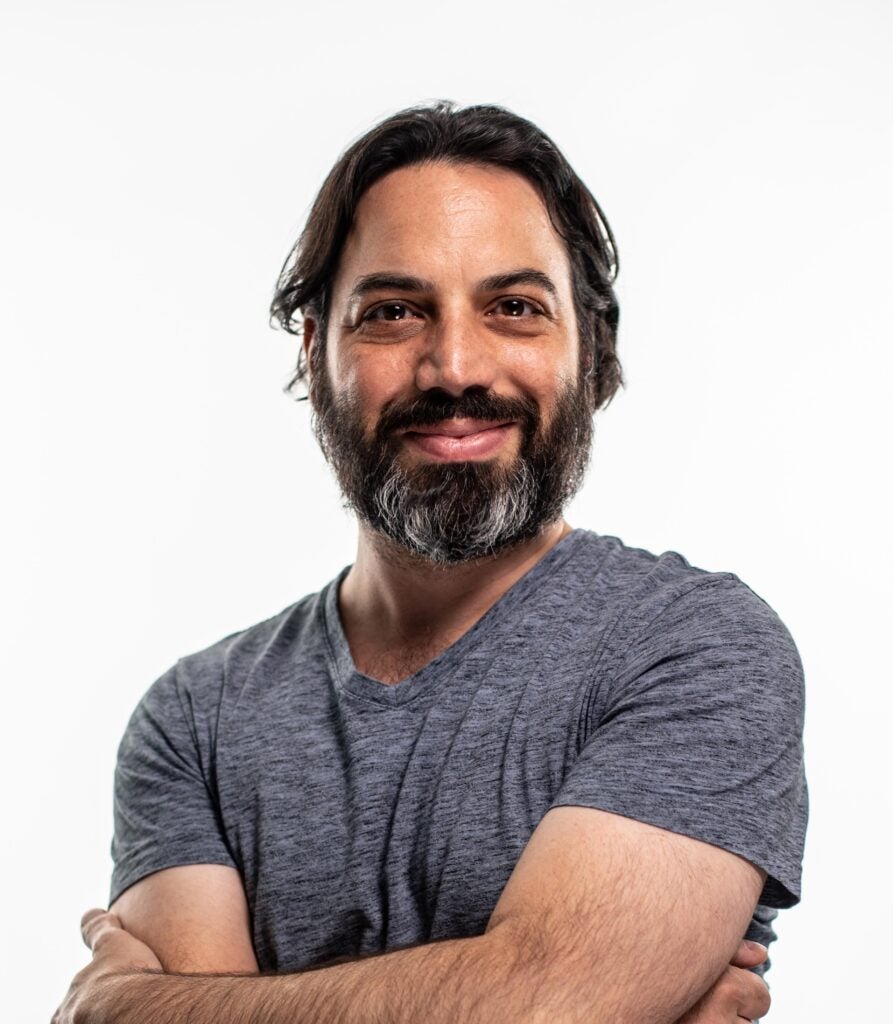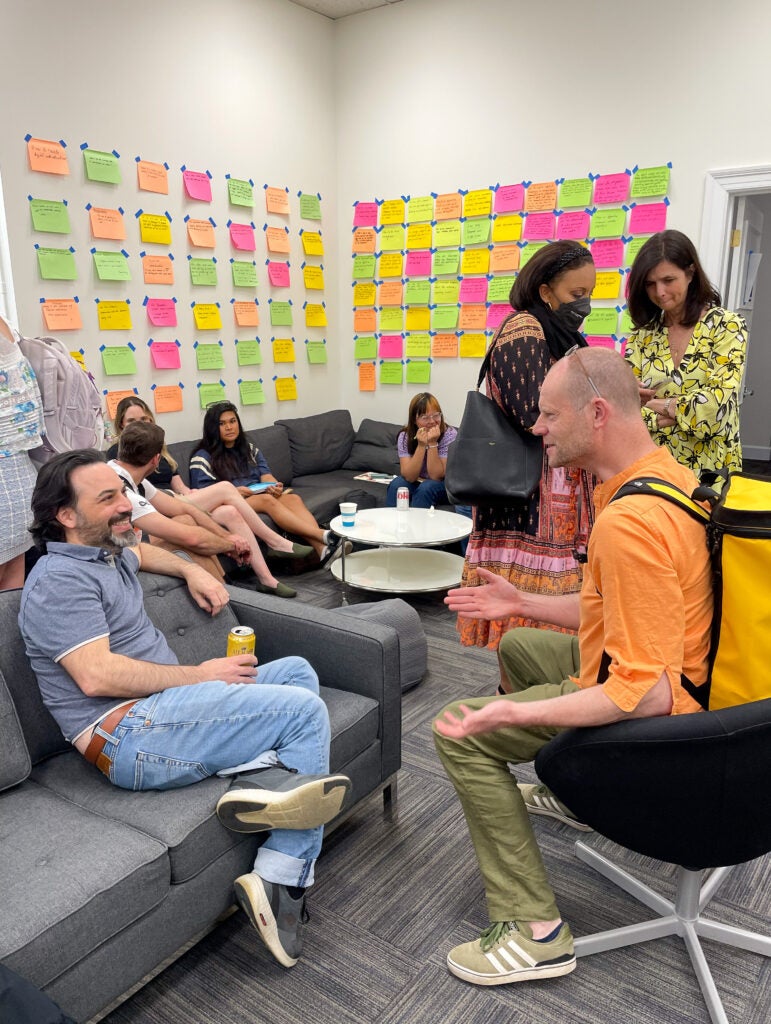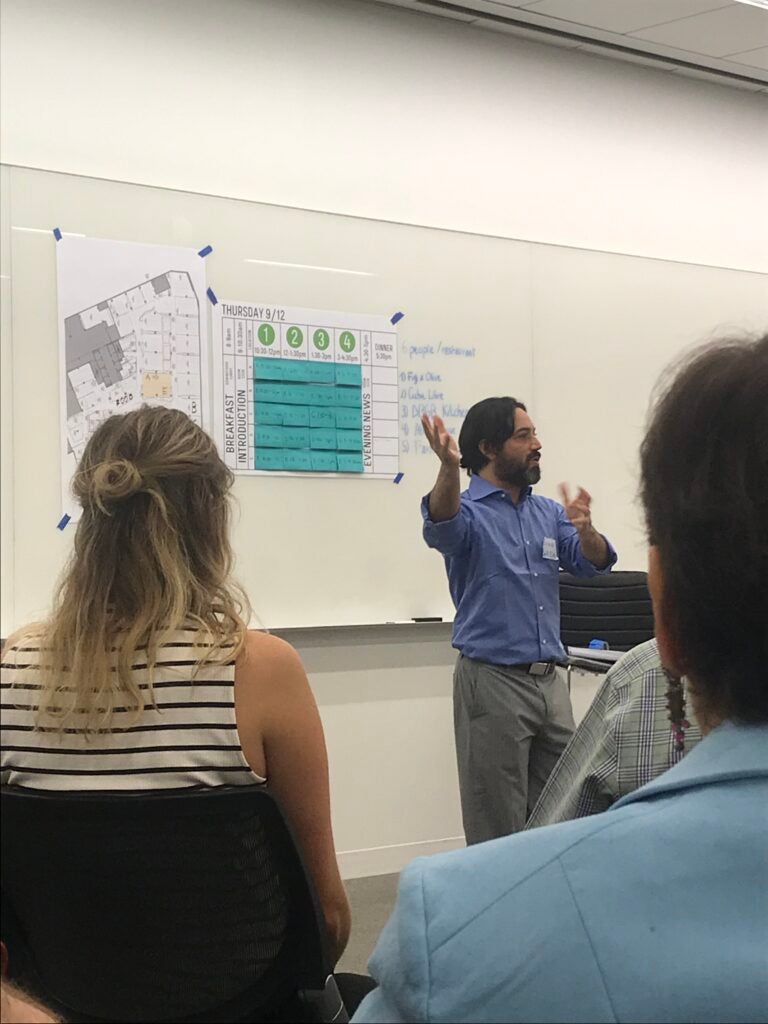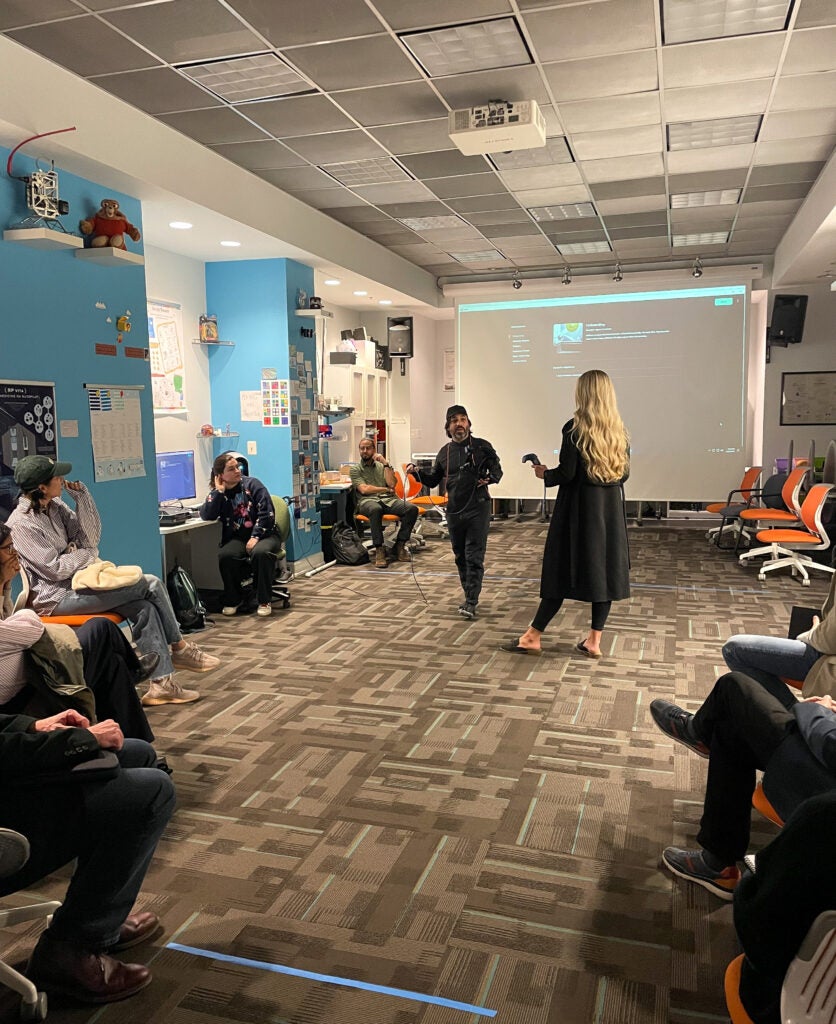CCT Professor Highlight: Evan Barba

CCT is excited to highlight Professor Evan Barba in honor of Programmer’s Day!
Professor Barba has a diverse background that covers many fields. He originally started out attending undergrad at Brown University, where he received his Sc.B in Neuroscience and A.B. in Modern Culture and Media. After graduating with Honors, he began working in the film industry on a variety of projects and roles. However, the instability of work in the industry was unsustainable long-term and he began looking at other occupations. He connected with an individual that got him a position as a junior stockbroker at a small wall street firm, and eventually became a “General Securities Principal.” This was around the time stock brokering was drastically changing and becoming electronic. He recognized the technological shift and felt he should return to school to expand his computing skills.
Barba attended NYU’s one-year post-Baccalaureate program to get a crash course in the elements of computer science and programming, followed by their interdisciplinary Master’s program in Information Systems that combined computer science and business. He recognized the benefits of that program, but felt that with computer science he should be making new creations rather than sticking to traditional class formats. He switched to a full Computer Science Master’s degree, and his thesis demonstrated full body interactive applications long before the Wii and Kinect. After exhibiting his system, he was contacted by a company to create a face reignition tool for out-of-home advertising, where they wanted to count impressions and know how long,, and how many people looked at specific billboards. Professor Barba built the technology and filed a patent for it, but ran into issues around the inequities in the patent process.
After his brief foray into the startup world, Barba began his PhD on Brain Computer Interfaces in the Human-Centered Computing program at Georgia Tech, but recognized that his main interest was using computers creatively. He then switched his PhD dissertation to focus on augmented reality and gaming. Before graduating, he discovered the CCT professor position and applied, and officially joined the CCT faculty in 2012.

Barba has taught various CCT classes since he joined the program over ten years ago, including: Technology, Culture and Mind; Sustainability Theory and Practice; Tangible and Embodied Computing; The Game of Chess; and, co-taught CCT-5006 for many years with Professor J.R. Osborn. The classes he currently teaches are:
Interaction Design: Electronics And Semantics (IDEAS), which Barba has taught for over ten years and is one of his favorite classes. He teaches students to program electronics and make their own fun creations. He finds it rewarding to see students learn and implement new skills – he features many of those student electronic artifacts in the CCT studio. Occasionally this class has a focus, and previously included an emphasis on everything from escape room puzzles to slavery and reconciliation.
Game and Simulation Programming in Unity Class (GASP) was first taught byBarba last year, and dives into using the Unity software and how it relates to important ideas in game design. Students can get an official programmer badge and learn programming, game design, graphics, and more, in an environment they care about making the games they want to make. This course is very successful for students who don’t want to do advanced computing but want knowledge and the ability to do things out of the box creatively. He is very excited to continue teaching this class and may plan to create a second semester of the class dedicated to Unity VR sessions.
Technologies of Persistence (TOP) is a class that focuses on the issues surrounding sustainability and thinking about the other side of this problem. In this class, students address how society will change if we come out the other end of a terrible climate solution. It also asks what technology we want to persist or keep with us through that situation, and what we throw away. It explores what things (or variations of things) we may need through the use of design work and AI in class. For the fall 2023 semester, he will be assisted by Visiting Scholar Adeline Avidsten from Norway, who he met at the 2022 RSD11 symposium. She will be helping with this class, hosting talks, and supporting with RSD12.

Barba has been participating in the Relating Systems Thinking and Design (RSD) symposium for eight years and is excited to be organizing the RSD12 conference this year as Conference Chair. Georgetown University is providing the platform and is the main hub, along with 12 different partnering institutions around the world. Barba greatly enjoys the RSD conferences because he sees things there that can’t be found anywhere else and finds that conversations happening are 2-3 years ahead of the rest of academia. RSD12 will take place from October 6-20, 2023, and Barba encourages CCT students to participate in the symposium.

Barba is also looking forward to collaborating on Iteration Lab projects with Professor Osborn, as they have worked on various projects together for years, including developing an iterative design methodology and creating a set of techniques that leverage sources as diverse as Six Sigma engineering to the I Ching, the Chinese book of changes, for project development. They will launch the newest version of the Iteration Lab in early fall, which will focus on bringing their innovations to new audiences outside of CCT.
In addition, Barba has ongoing projects in VR, and police training and using Agent-Based Models to simulate disaster response. He became involved in VR training through a VR courtroom project with the GU Law Center years ago and has been partnered with the Center for Innovations in Community Safety for 2 years now.
Barba is excited to connect with the latest cohort of CCT students. He appreciates when students come to him with ideas for projects that challenge conventional ways of thinking and have absolutely no commercial viability.